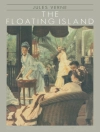Edith Wharton’s ‘The House of Mirth’ explores the intricate social dynamics and moral complexities of early 20th-century New York high society. Through the poignant narrative of Lily Bart, a young woman navigating the treacherous waters of wealth, marriage, and societal expectations, Wharton delves into themes of class, gender, and the often harsh realities of social ambition. The novel’s richly detailed prose, steeped in realism and psychological insight, illuminates the struggles of individuals caught in the relentless machinery of socio-economic constraints, reflecting the broader cultural tensions of the Gilded Age. Edith Wharton, a prominent figure in American literature, was raised in a wealthy family and was acutely aware of the rigid class structures and gender roles that governed her time. Her personal experiences, including her own struggles with societal expectations and the constraints placed on women, deeply influenced her writing. As one of the first women to gain recognition in the literary canon, Wharton’s incisive critique of high society allowed her to address fundamental questions surrounding identity, value, and independence. ‘The House of Mirth’ is an essential read for anyone interested in the complexities of social ambition and the price of societal acceptance. Wharton’s masterful storytelling not only engages readers but also invites introspection on contemporary values and the continuing relevance of these themes today.
About the author
Edith Wharton, born Edith Newbold Jones on January 24, 1862, into a wealthy New York family, was a distinguished American novelist, short story writer, and designer. Wharton broke through the confines of her upper-class background to become a prolific writer, keenly observing the nuances of social strata and the subtlety of human behavior. Her literary prowess was cemented with the publication of ‘The House of Mirth’ in 1905, a novel that assailed the vacuity of affluent New York society through the tragic tale of Lily Bart. A master of American realism and naturalism, Wharton’s writing was characterized by its critical exploration of social dynamics, intricate character development, and vivid descriptions, qualities that earned her a Pulitzer Prize for ‘The Age of Innocence’ in 1921. Wharton’s profound influence on American literature is found not just in her novels, but also in her short stories and her groundbreaking work on interior design and architecture, showcased in ‘The Decoration of Houses’ and ‘Italian Villas and Their Gardens’. Throughout a career that spanned over four decades, Edith Wharton published more than forty books, leaving a legacy that endures in the canon of American literature. Wharton passed away on August 11, 1937, but her work continues to captivate scholars and readers alike, ensuring her a prominent place among the luminaries of literary history.












